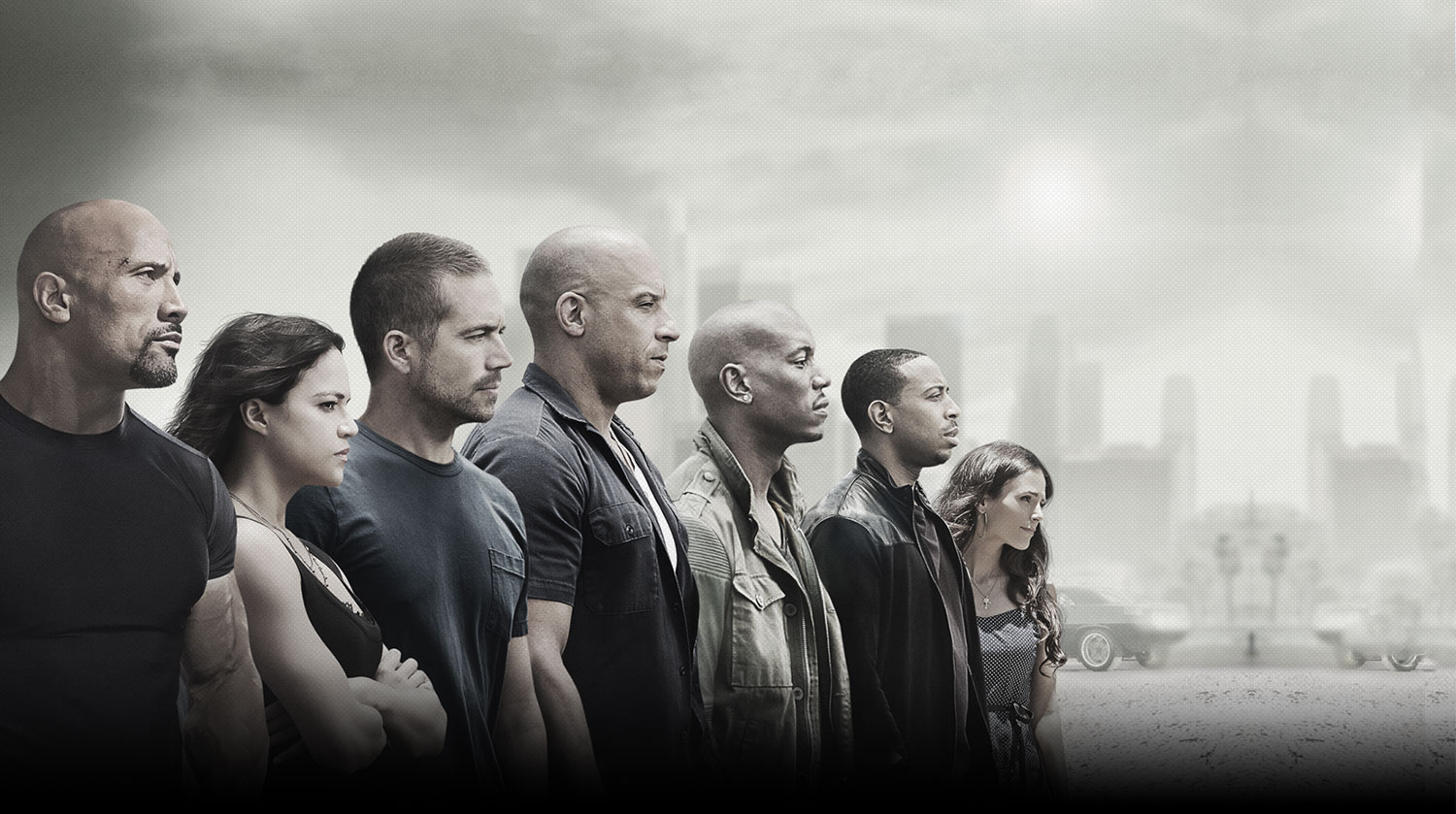It would seem that the diversity renaissance happening on TV has finally made its way to the movies. I say “finally” even though we’ve had tons of black films come out in recent years. But black films doesn’t mean all of diversity is shown, right? However, with the audience results for Furious 7, a film with a multicultural cast, films with truly diverse casts are on the verge of becoming not just a norm, but a prerequisite if studios want to see their film do well at the box office.
The Hollywood Reporter put out an article detailing how 75 percent of Furious 7‘s audience was non-white. The money made from audience is telling and very influential when it comes to how film casting will be made in the future.
To quote the article:
“The Universal movie opened to a franchise-best $384 million over the weekend at the global box office, including $143.6 million domestically—the biggetst debut since The Hunger Games: Catching Fire in November 2013 ($158 million). More impressive, it’s global bow was the fourth-best of all time,” states the site. “According to Universal, 75 percent of the audience in North America was non-Caucasian, generally in line with previous installments. Hispanics, the most frequent moviegoers in the U.S., made up the majority of ticket buyers (37 percent) followed by Caucasians (25 percent), African Americans (24 percent), Asians (10 percent) and other (4 percent).
“The importance of diversity of the ensemble cast in the Fast and Furious franchise has been an integral part of the success of the brand, said Rentrak box office analyist Paul Dergarabedian. “There is literally someone within a cast that is relatable on some level to nearly every moviegoer around the world, and this has paid big dividends at the box office and also in terms of how casting decisions will be made in the future for these types of large-scale action epics.”
Dergarabedian and other box office pundits are hard-pressed to think of another franchise that is as ethnically diverse, even as Hollywood in general is criticized for a lack of diversity both behind and in front of the camera.
To me, it’s no wonder that the movie has made so much money. First of all, of course one reason is because this is the last movie Paul Walker made. But secondly, it’s because there are so many characters that look like so many of the audience members. Out of the main cast, Walker was the only white guy. The rest—Dwayne Johnson, Ludacris, Vin Diesel, Michelle Rodriguez, Tyrese, Tony Jaa, etc.—are all, for lack of a better word, “minorities.” If a film starring mostly minorities is shown to a lucrative movie-going demographic that’s mostly minority, then presto—you’ve got a hit.
The thing that will be interesting to watch is just how much casting calls will change now that it’s beyond proven that diverse casts work. The article makes a point of saying how casting for films action films will reflect the cast demographics in Furious 7, but I’d argue that if Hollywood sees how popular these films are with diverse casts, the need for diverse casting will happen for films of all genres, not just action.
Hollywood can’t turn down money; for decades, the “whites only” idea was what made money, but now that we’re getting into a new age of entertainment, coupled with the changing societal demographics in America, Hollywood’s slowly waking up to the fact that a “minority” majority will not be satisfied with entertainment that doesn’t reflect them.
What do you think about the casting changes coming to Hollywood? Give your opinions in the comments section below!
Photo credit: Universal Pictures
What did you think of this article? Share it with your friends through social media!
